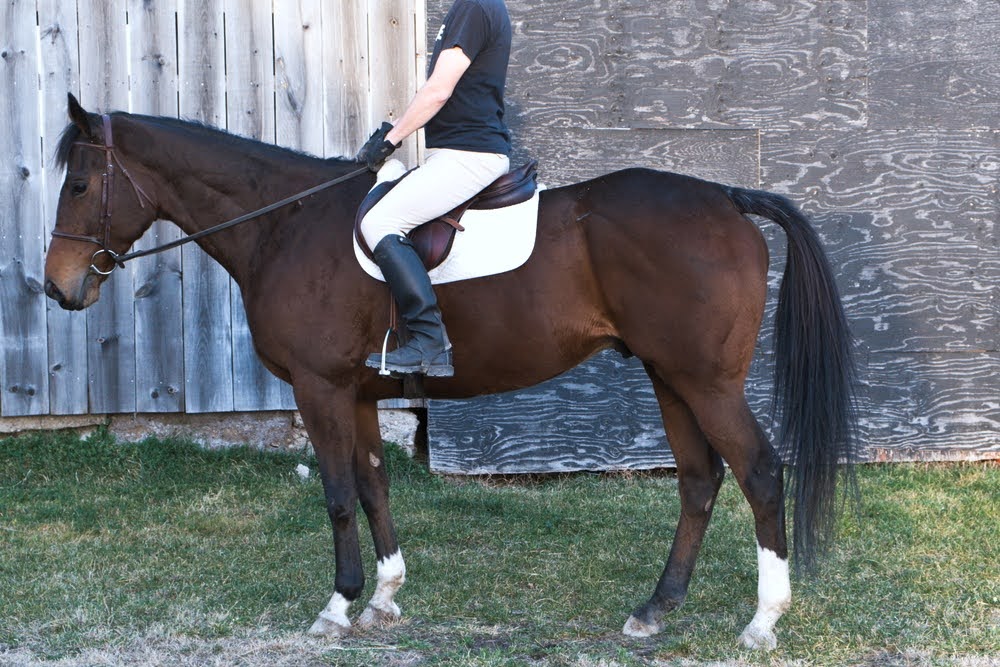How to Establish Trust with Your Horse in 7 Steps
The secret to having trust between you and your horse is you must be trustworthy.
And to lose trust, you first must have it. It is up to us as the human in the relationship between horse and human to start to gain the horse’s trust rather than waiting or hoping that the horse will reach out to us for us to gain their trust.
This isn’t just the treat at the end of the ride, the grain or the scratch at the withers, it is all the connection in between. Even on the bad days. It is easy to be nice when things are going well, but being cool and empathetic when things are going poorly is more difficult.
Here are some things you can do:
- Spend time with your horse.
Time that is just “hanging out” time. No strings attached. Get a chair and sit outside the open door to your horse’s stall. Allow the horse to sniff you and see what you are doing. Take a book. Spend 15 minutes to thirty minutes just sitting there. Reading allowing the horse to be a horse and you just being yourself.
Actually watch what the horse is doing. How they eat their hay, how they move their legs and even poop in their stall. You will start to form a bond with your horse this way. - Don’t YELL or raise your voice with your horse.
Being calm is what horses like. Raising your voice will raise the adrenaline within your horse. Your horse psychologically speaking is looking for a leader that will take them away from danger. Not be the cause of danger.
Let me ask you this… do you like to spend time around people who are always YELLING at you or telling you what to do? - Talk nicely about your horse and to your horse.
I had a former friend call my horse a “cow”. I thought it was very sad to know that she thought that way about a horse. If you think that way and start your conversation with name calling, you will look for those traits within the horse. It sets the tone for the rest of the time you have with your horse. If you start it by calling your horse disparaging names, then they will feel that ‘bad energy’ and fulfill that name.
Let me ask you this… do you like to spend time with people who name-call you behind your back? - Take responsibility.
If you label your horse as difficult, stupid or spooky, you pass all the responsibility of the trait on to the horse. Itcould be thatis a team effort. You are 50% of that relationship. If you pass on ALL the responsibility to the horse, then you remove YOUR part of the equation. “This horse can’t do that because he is so <fill in problem here>”. You remove your responsibility from the equation.
So you have removed your responsibility of being able to do something and put it all on the horse.
TIP – make up a cute, pet name for your horse that describes what you would like to have your horse be like. For example, if your horse is tense, try a name that exemplifies a soft relaxed horse that you would like to ride. “Handsome Marshmallow Man” or “Squishy Slow Poke” come to mind. If your horse is slow and you need more energy, “Speedy Rocket”— that sort of thing.
This puts in your brain in a position to see a different part and expect a different action from your horse. If you are always labeling your horse in a bad light, you will focus on those bad things and not see the simple good things they are doing.
Let me ask you this … Do you like to spend time with people who are always telling you that you are to blame? - Understanding your and your horse’s weaknesses
By understanding your weaknesses and your horses weaknesses puts a spotlight on what you can do about them. So often we know our weaknesses but do not do anything to improve or strengthen them.
Say, for example, your horse doesn’t like to leave their pasture mates, rather than saying, “my horse has anxiety” (which they may or probably have, by the way) try to sort out why.
Here’s an exercise – make a list of your horse’s weaknesses. Things like, paws on the cross ties, doesn’t respect my space, never picks up the right lead canter, whatever you perceive as a weakness. List it out.
Now, make a list of your weaknesses. Things like, “I don’t like to ride alone”, “i’m worried I’m going to mess up my horse”, “I can’t feel my diagonal”.
Now look to see if there is any link between your horse and you. For example, “my horse doesn’t like to leave their pasture mates” and “I don’t like to ride alone” could be similar issues. And taking responsibility for your own weakness may resolve your horse’s insecurities about being “alone” with you.
The final step would be to write in some solutions you can do to correct the things you have identified. These are not to be shared, but rather to be noticed and for you to understand if you want to establish trust with your horse, the trust has to come from within you first.
Let me ask you this… Do you trust someone who tells you, you are doing it wrong but they are doing the exact same thing? - Don’t punish mistakes— praise for trying something
You know when you’ve made a mistake, right? You do not need to be told or punished for them. How easy is it for you to focus on your work if you are punished for something. Not easy. If you are praised, however, for a “good try” then you are more likely to try again.
My husband attended a leadership conference where the “class” had hidden a pen at the back of the room.
And just by using “positive” and “negative” remarks a guest was to find the hidden pen. The first person, guest-1, came in the room and searched. Each time guest-1 looked under something the “trainer” would say, “getting closer” or “good try but that’s not it”. Kind of like the old “warmer/colder” game. Within 7 minutes “guest 1” had found the pen. And was so excited high 5-ed everyone.
Guest-2 came in and each time guest-2 looked at something the “trainer” would say something like, “what are you stupid, it’s not there”, or “I TOLD you it wasn’t THERE”, or “what’s WRONG with you”. After 20 minutes of searching “guest-2” was so pissed off, angry and ready to punch something.
This goes to show you how adult professionals react to positive reinforcement. If adult professionals react this way, what are horses going to do?
Let me ask you this… Would you trust someone who is always punishing you? - Listen to your horse
How often do you “mis-cue” your horse and still expect them to fill in the blanks and do what you meant to ask them to do. For example, have you accidentally kicked your horse and not mean it to go forward?
Or
Pulled back on the reins when you lost your balance?
We, as riders, still expect our horses to listen to our aids when we really mean it. They have to listen to us and interpret when it means something and when they can ignore it.
But, when we misunderstand the horse — when they are frightened and concerned, off balance and running, or spooking, do we afford the horse the same understanding? To try to think of why they are doing that?
Let me ask you this… Would you trust someone who is telling you a bunch of “stuff” that isn’t important?
Building trust with your horse doesn’t happen over night. It is a process and it takes consistent regular contact with your horse.
Sign up for the newsletter. People tell me they have gotten valuable information from it. Loads of tips and helpful exercises.
 Try these three powerful exercises to get strengthen your position.
Try these three powerful exercises to get strengthen your position.
